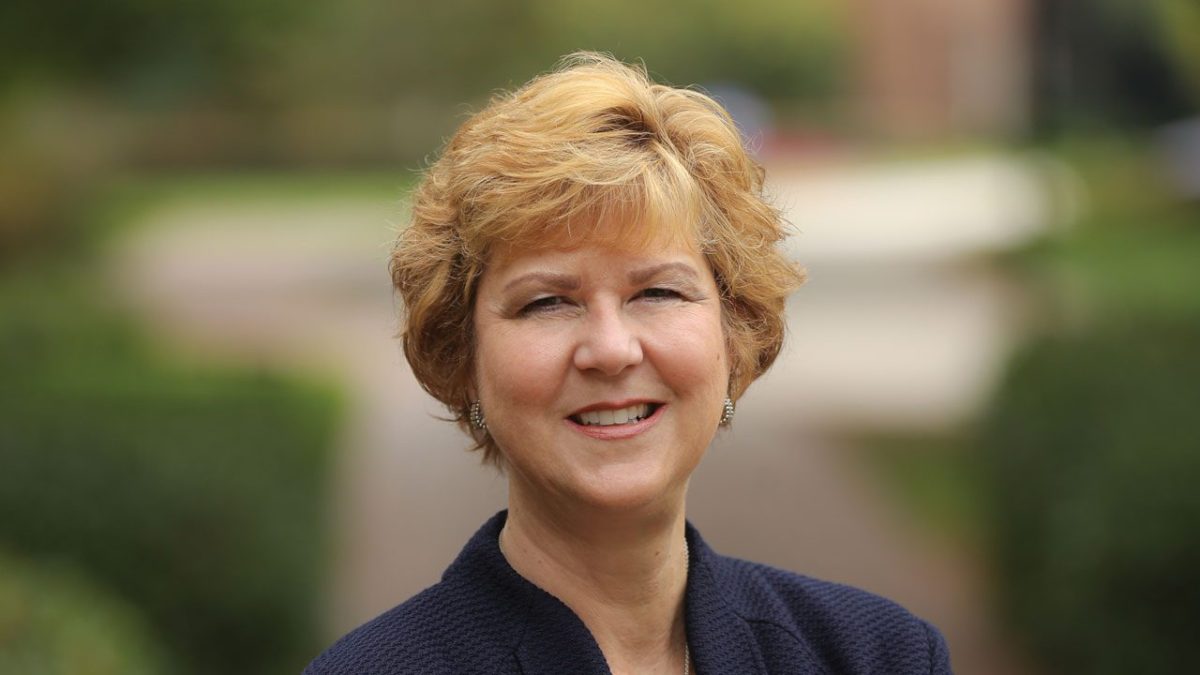The discussions were wide-ranging, the opinions passionate and diverse, but if any consensus emerged out of the Presidential Search Committee’s listening sessions last week, it was that students, faculty, and staff admire Interim President Carl Kohrt and are looking for a candidate with similar qualities to lead a university that they say has lost its way during the past few years.
Altogether approximately 100 students, faculty, and staff attended the four listening sessions, which allowed members of the Furman community to give their input to representatives from the search committee and Russell Reynolds Associates, the outside firm spearheading the search for Furman’s next president.
Mirah Horowitz, one of two consultants from Russell Reynolds Associates working with the search committee, led the sessions. She asked attendees about how they define Furman’s identity and the challenges facing the university, and she requested patience from the university community as well as specific nominations that would allow her to calibrate what to look for in candidates.
President Kohrt’s name came up several times during the sessions as an example of the kind of leader Furman needs. Faculty and staff in particular praised Kohrt for listening to their input and leading a more transparent administration, and they identified his academic credentials and business experience as a key combination of qualities for a university president.
There was a wider range of perspectives about what the primary role of Furman’s president should be. Several faculty and staff argued that the next president would need to be a great fundraiser in order to provide for the university’s financial security, which they said was important in light of the current $6.4 million budget shortfall.
Only seven students attended the student listening session, but those who were there emphasized the president’s role as the public face of the university and as someone who could help develop a sense of community.
At the second of the two faculty sessions, philosophy professor David Gandolfo said Furman needs a president who understands and can argue for the liberal arts, particularly in response to new trends in higher education like online learning that de-emphasize student-teacher interaction.
“We need someone who can give a robust defense of the liberal arts: what they are, why they’re important to society, why they’re important to developing students into fully realized human beings,” he said.
Still others argued that there were limits to how much a president could accomplish and said it was best not to pin too many hopes on a single leader.
“Furman’s president is not going to solve the problems of higher education,” said history professor Erik Ching. “I don’t know if I want a superstar. Part of me just wants a really good manager.”
There was also a sense at the sessions that Furman has stumbled in addressing new challenges in higher education and needs a leader who can help develop a clear strategic vision for the university.
At the second faculty session, which drew around 15 professors, several argued that recent initiatives have distracted from Furman’s core academic mission, and some suggested that Furman was moving in too many different directions, or even moving backwards.
“For many years, there was a sense that Furman was much better than its reputation. We had an idea that we were building something,” one professor said. “That’s turned around in the past five years, and we’re headed in the other direction.”
Another professor said that a president was needed who could remoralize “a profoundly demoralized faculty,” adding that the fact that faculty salaries haven’t changed much in several years reflected poorly on the university’s priorities.
Staff made similar arguments about the need for a leader who could develop a clear strategic plan at their listening session, which drew around 70 attendees.
“Furman is still not clear what its identity really is,” said Brad Harmon, Associate Director of Residence Life, while adding that he worried increasing tuition costs could make the university become elitist.
Several staff echoed the faculty opinion that academics is the university’s greatest strength, but they said they wanted a president who recognized the work staff members do to contribute to the success of students and faculty. They also discussed the importance of developing alumni relationships and selling the university as one of the strongest liberal arts universities in the Southeast.
The listening sessions also allowed attendees to ask questions about the search process, though representatives from the search committee and Russell Reynolds Associates reiterated that it would be a confidential process and were tight-lipped about specifics.
Horowitz said that she and her partner at Russell Reynolds Associates, Alison Ranney, expected to reach out to 300 to 400 candidates and that the search committee would seriously consider 40 to 50 candidates. The search will take as long as is needed to find the best candidate, she said, but usually takes about six months.
Candidates will be expected to make a minimum seven to 10 year commitment to the university and will broadly fit into three types: sitting university presidents, provosts and upper-level administrators, and “outside the box” candidates. Horowitz said “outside the box” candidates might include private-sector leaders who had formerly served in academia as well as members of boards of trustees, and she said that she would slot Kohrt in that category.
Horowitz declined to comment about specific qualities that she and her partner would be looking for but said that she did not view it as essential that candidates have a previous connection to Furman, asking that the university community maintain an open mind.
“My job is to provide as many options as possible,” she said at the staff listening session.



























